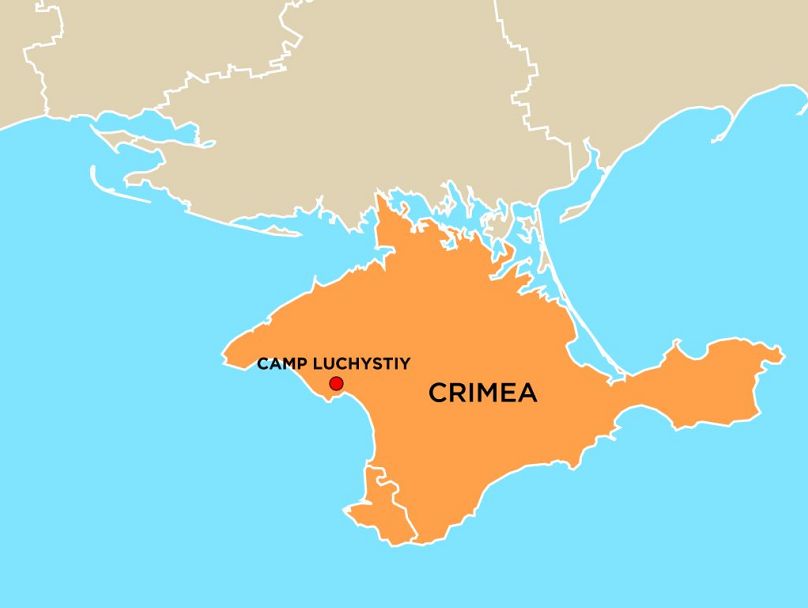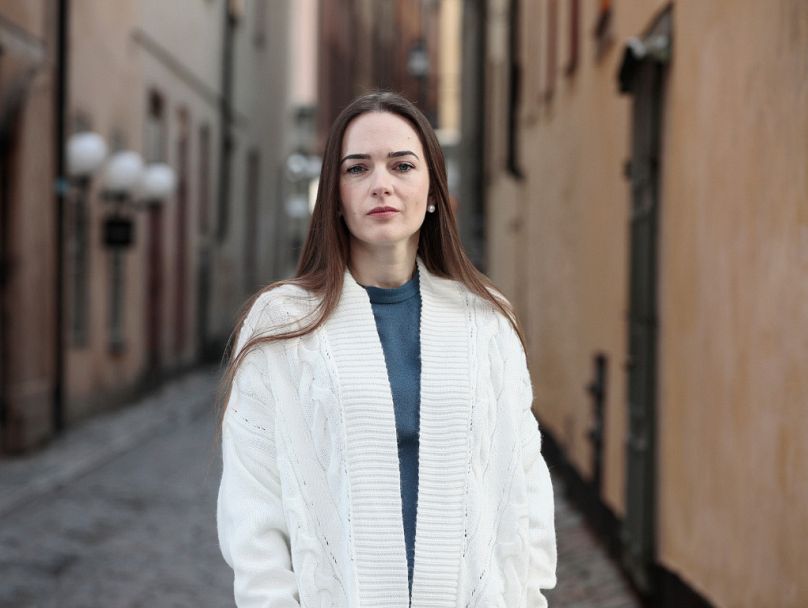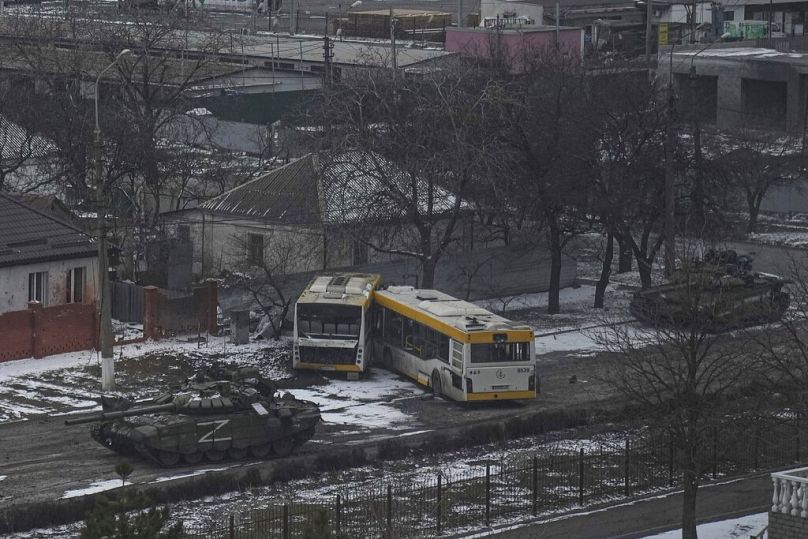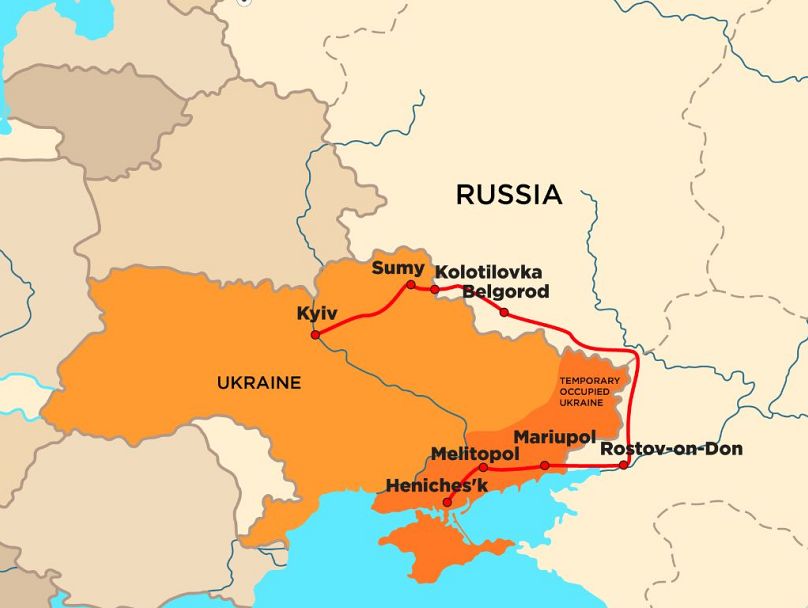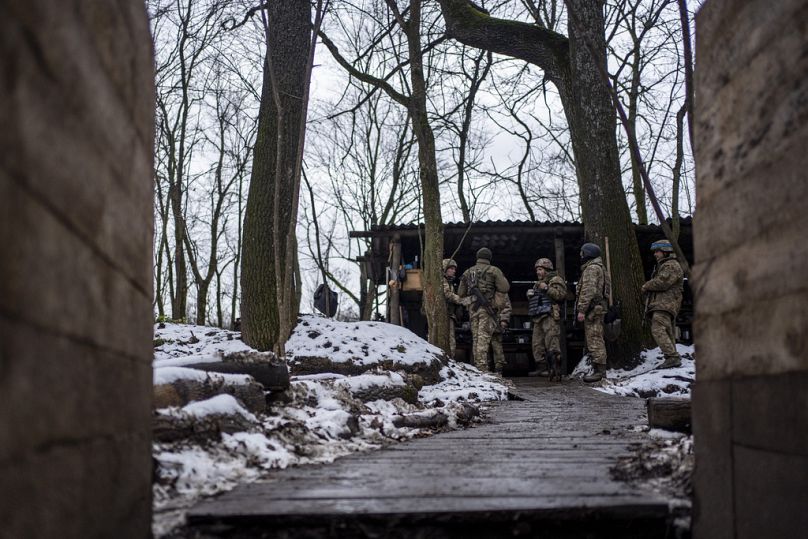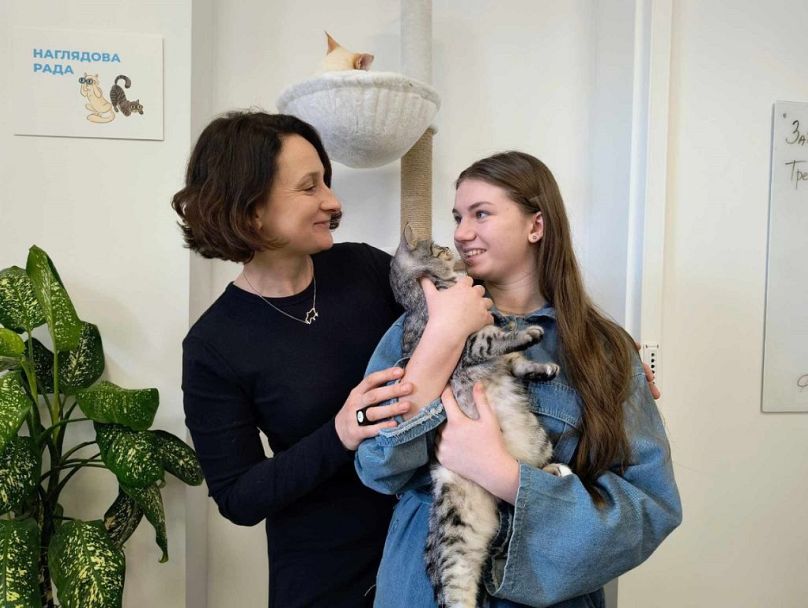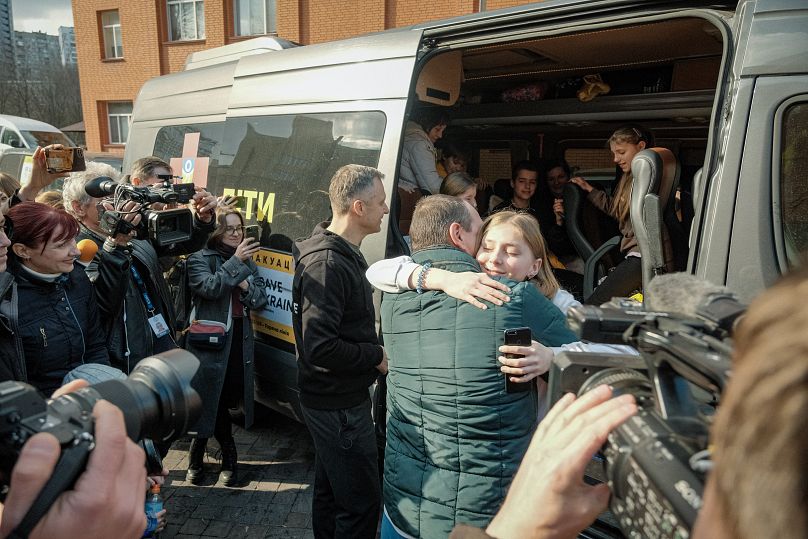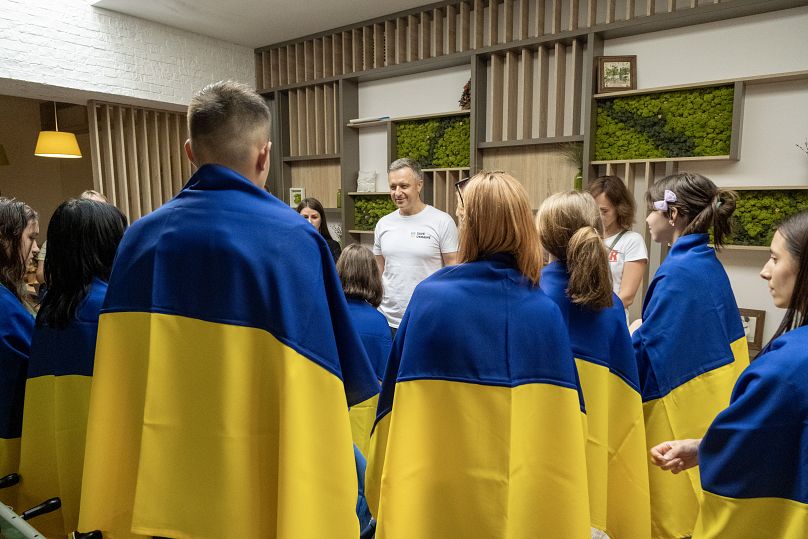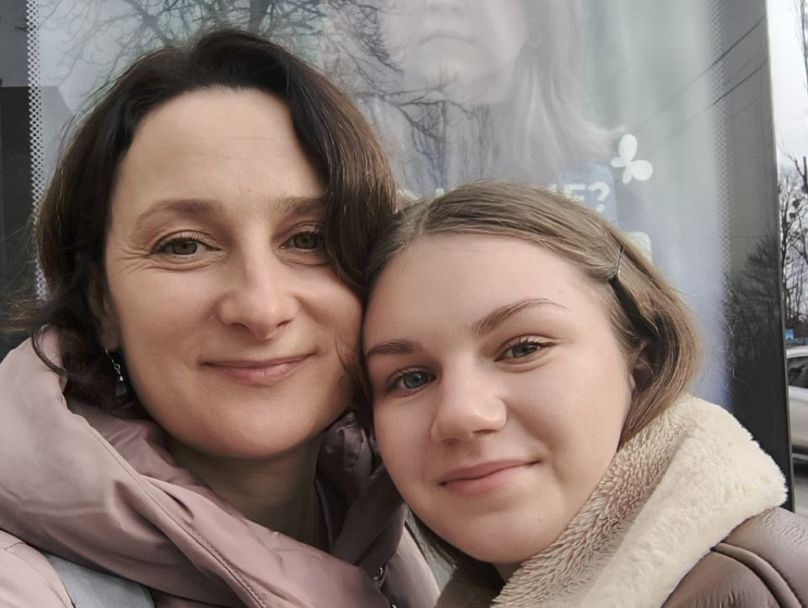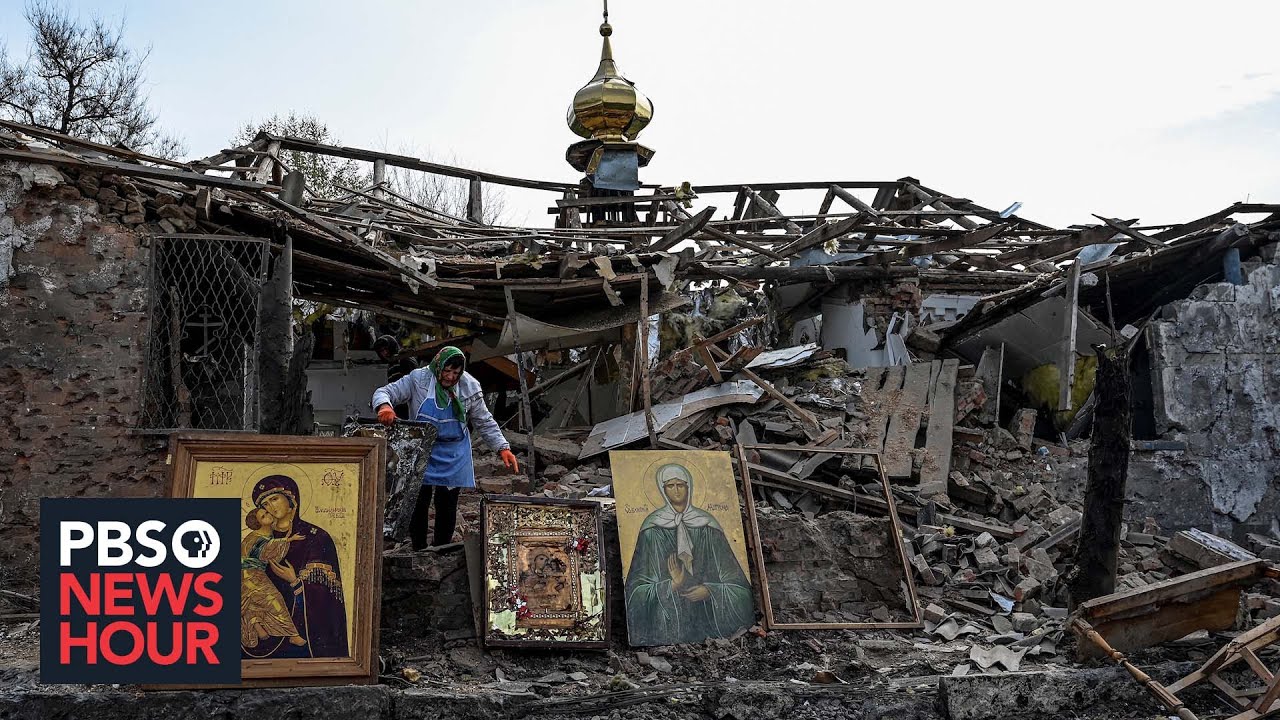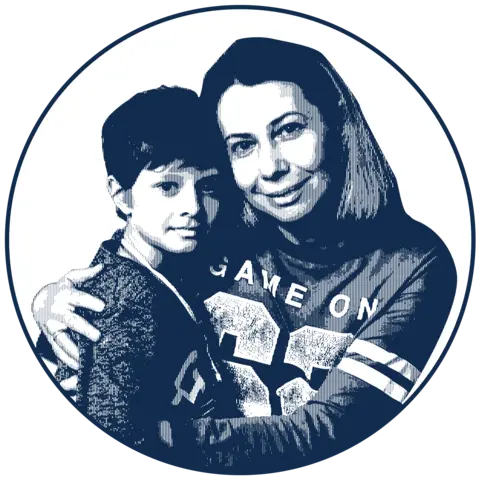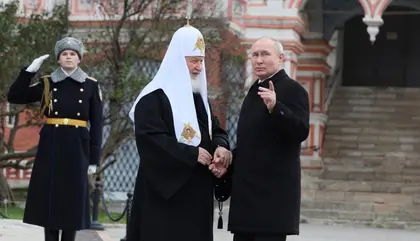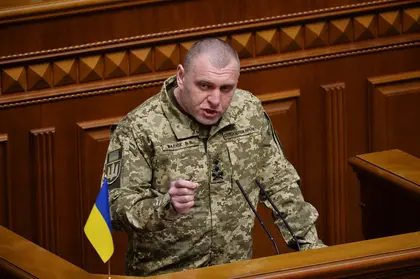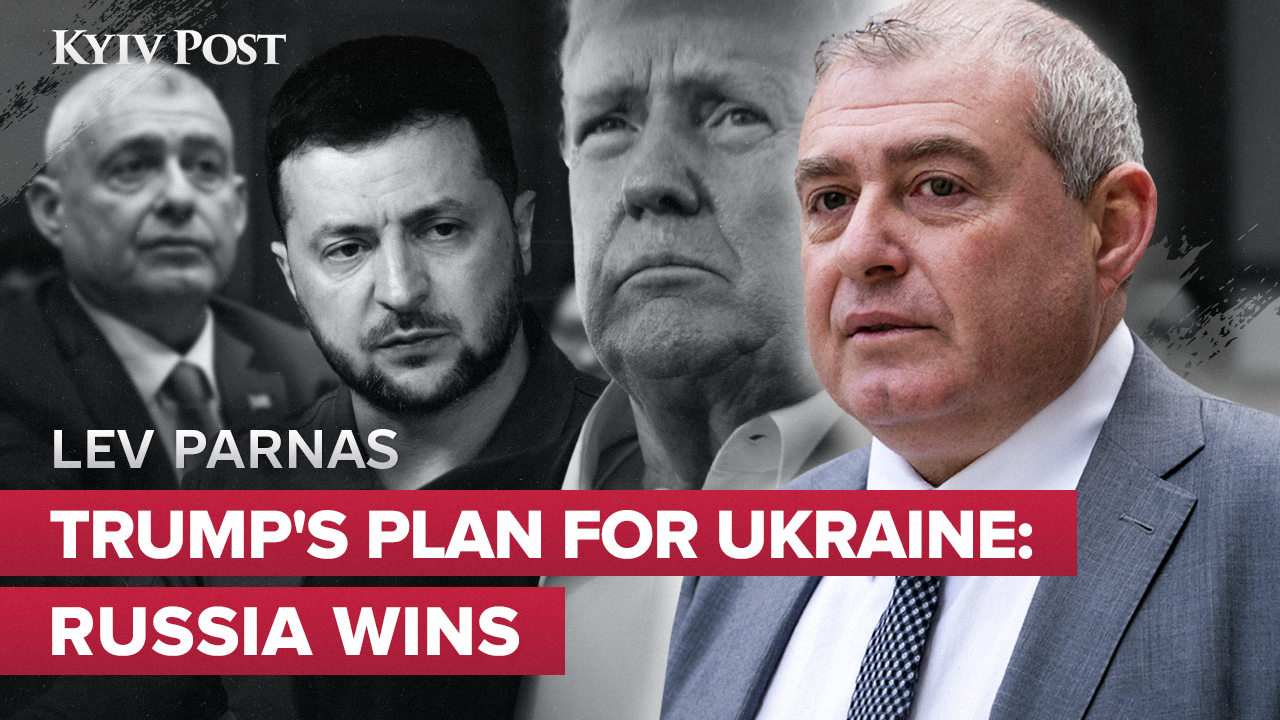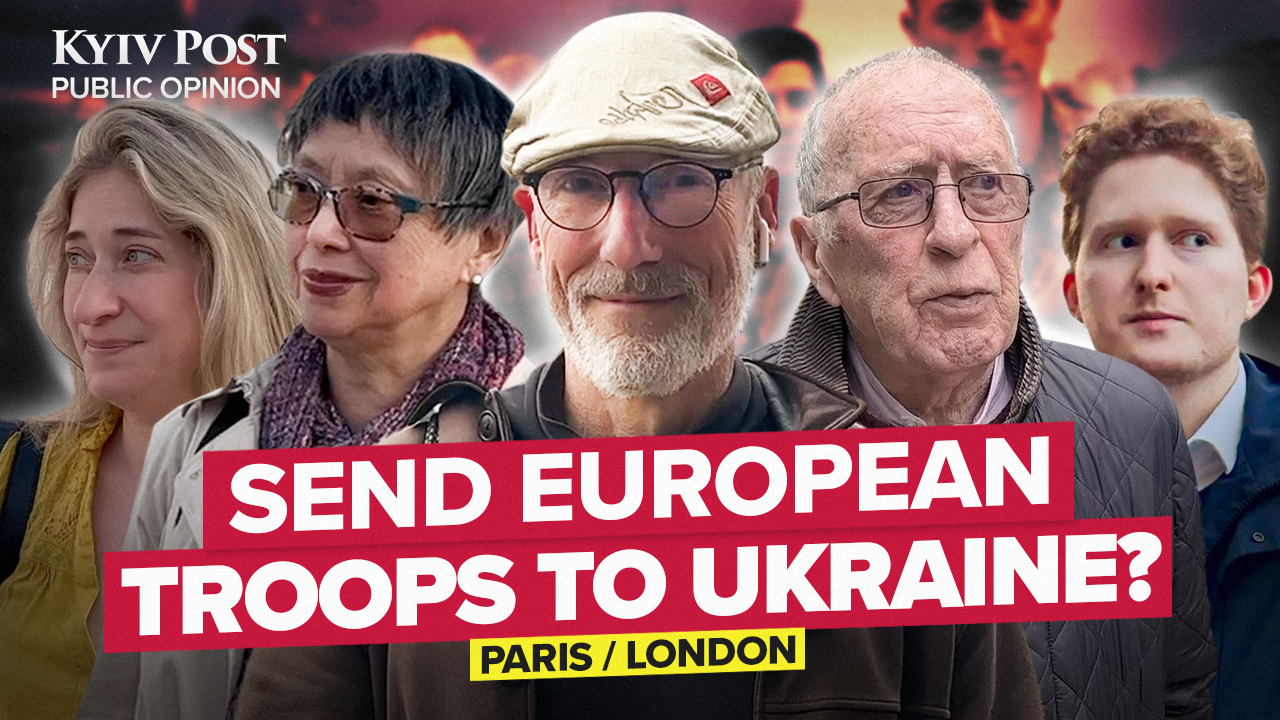How 17-year-old Ukrainian Valeriia escaped a Russian re-education camp
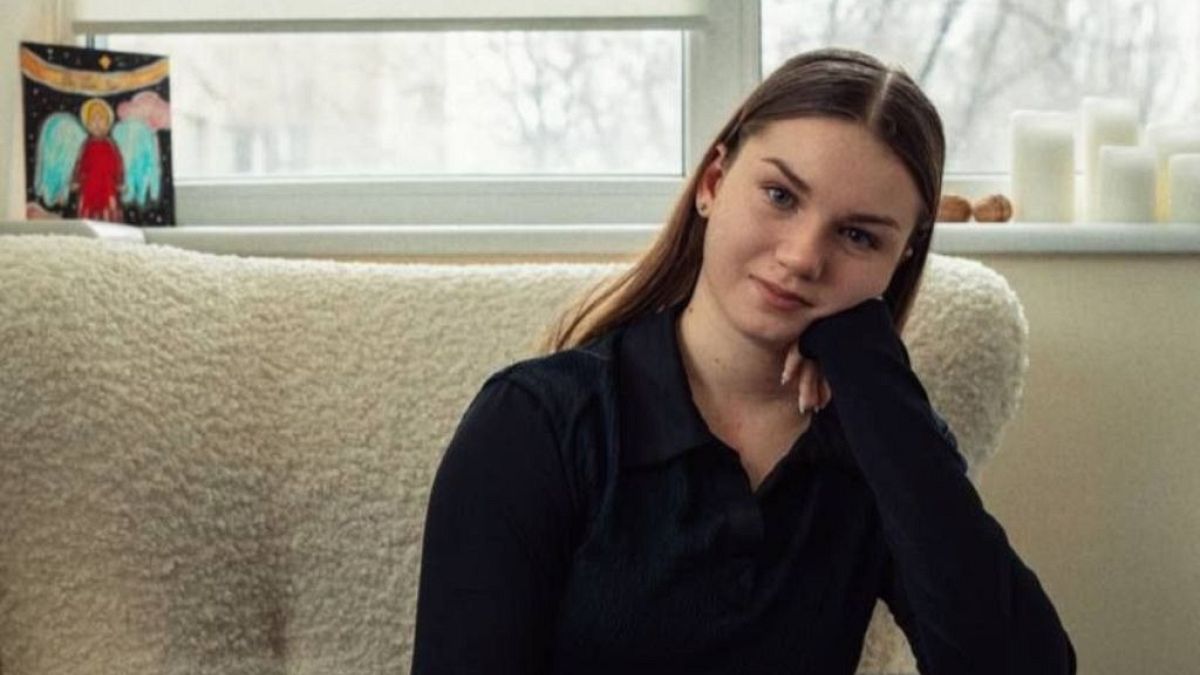
17-year-old Ukrainian Valeriia was abducted to a Russian re-education camp in Crimea. She tells Euronews how she made it back to Ukraine on her own.
Before the full-scale invasion, 17-year-old Valeriia lived an ordinary life as a 10th-grade student, preparing for exams and taking part in activities, including dancing and aerial gymnastics. She lived with a family member since the age of 13 following the death of her parents.
Everything changed with the Russian full-scale invasion
Valeriia had a bright future ahead of herself – everything was supposed to work out the way she wanted. When she heard about the full-scale invasion on the news, it felt surreal to her. Everything changed rapidly, and she struggled to fully understand the situation.
Russian troops soon arrived and occupied the southern Ukrainian city of Nova Kakhovka, also her hometown. During a particularly intense period of shelling, she was forced to live without food after Ukrainian supplies ran out, but the situation stabilised after supply trucks from occupied Crimea started arriving. Back then, Russian military police gradually appeared in the city, located in the Kherson Oblast. It was a quiet period - explosions didn't shatter the air.
In October 2022, Russian troops announced an “evacuation” of children from Nova Kakhovka to occupied Crimea. Valeriia, along with other kids, had to gather in the main square surrounded by armed military. Buses took them to the Crimean border. Upon arrival, they confiscated the children's passports and documents.
“Russia will give you everything”
After Valeriia arrived in a Crimean camp called ‘Luchystiy,' paediatricians examined the children for lice and COVID-19. She remembers the camp resembling a retirement home, but devoid of child-centric amenities. Plus the facility was surrounded by armed police officers, constantly guarding the children. A regimented daily routine included singing the Russian National Anthem - which she refused. Authorities promoted Russian universities and lifestyles, promising them that “Russia will give you everything”.
For Valeriia, the coerced environment raised concerns about her freedom and future, but the daily schedule was unpredictable, therefore making it difficult to plan. “The camps were re-education camps”, she added. In her opinion, they served the purpose of ensuring the majority of children ended up going to Russia. The classes could therefore only be described as propaganda, she remembered, adding that learning Ukrainian at the school was not an option.
The programme at these camps is called 'University Shift' and operates with the support of the Russian Ministry of Education of Russia and the Ministry of Education and Science. It aims to (re-)educate children aged 12-17 from temporarily occupied Ukrainian territories into Russian culture and history.
“The forceful deportation of Ukrainian children is a part of genocidal policy”
According to Nobel Peace Prize Laureate, human rights lawyer and Center for Civil Liberties-leader, Oleksandra Matviichuk, these camps and their aim to russify Ukrainian children is not just a war crime, but part of a broader picture. “This war has a genocidal character”, she said, “Putin openly said that Ukrainians don’t exist, that we are the same as Russians. We see these words implemented into horrible practice on the ground since 2014.”
Just like Valeriia, she also mentioned the deliberate ban on the Ukrainian language and history. “For ten years, we’ve been documenting how Russians deliberately exterminate acting locals, such as mayors, journalists, civil society actors, priests and artists, for example.”
In this regard, the forceful deportation of Ukrainian children is part of a genocide policy, because some of them are put in re-education camps where they’re told they’re Russian and Russia is their motherland, she told me. “Later, some of them are subjected to forceful adoption into Russian families to be brought up as Russians”, Matviichuk continued.
As a lawyer, she knows how difficult it is to prove this crime, especially according to the current standards. “Even if you’re not a lawyer, it’s easy to understand that if you want to partially or destroy a national group, you have several strategies, such as killing them or forcefully changing their identity,” she added.
“Forceful abduction of Ukrainian children is a part of this broader genocidal policy of the Russian state against Ukraine.” The Genocide Convention's Article II defines genocide as the deliberate act of destroying a national, ethnic, racial, or religious group, either wholly or partially. It excludes, however, political groups and what is referred to as 'cultural genocide'.
Valeriia decides to pursue her dream of studying medicine
In the camp, poor-quality food frequently caused stomach issues, with limited access to medical care. Very small children suffered greatly due to inadequate care and harsh conditions, remembered Valeriia. With their parents or guardians absent, they roamed unsupervised, enduring cold weather without proper clothing. Many fell ill with bronchitis. Outbreaks of diseases like chickenpox and lice were common.
Though the children were allowed to use their phones, there was hardly ever any service. Valeriia just about managed to contact a member of her family, asking to be picked up.
Ukrainians living in the occupied territories are considered "New Russians" by the Russian authorities
According to the Crimean Centre of Civil Education, Alemenda, these kinds of camps restrict the children's return citing parental political stance. Instances of forced relocation and psychological pressure have been reported, with family members facing obstacles to reuniting with their children, especially when they are pro-Ukraine. When these children express a desire for their parents to visit them, the family members are encouraged to relocate to Russian-controlled territories. Ukrainians living in temporarily occupied territories are seen as “New Russians” by the authorities.
Her family member was therefore able to pick her up, since they lived in occupied territory. After having stayed in the camp for a total of two months, she went to occupied Henichesk in southern Ukraine.
Valeriia travels on her own to Ukraine
Having experienced this dire medical situation in the camp, Valeriia decided to pursue her childhood dream of becoming a doctor. As an orphan from an occupied territory, she leveraged her circumstances in university admissions, and had both Russian and Ukrainian passports. While staying in temporary-occupied Henichesk, she chose a university in Odesa and applied online, as she didn’t want to stay in Russian-controlled and occupied territories.
From occupied Henichesk, Valeriia started her journey by herself on a bus. Passing through various occupied Ukrainian cities, such as the destroyed Melitopol and Mariupol, then crossing into Rostov in Russia.
With a Russian passport, crossing the border was smooth. In the temporary-occupied territories, possession of a Russian passport is essential for proving property ownership and retaining access to healthcare and retirement benefits. Failure to obtain the forced new passport by July 1, as mandated by a new Russian law in occupied territories, may lead to imprisonment as a ‘foreign citizen’, risking custody loss, imprisonment, or worse.
The last border crossing
Continuing through Belgorod and the Sumy region, the journey, facilitated by efficient border crossings, took her a day to complete. At the final border in Sumy, which is still open for pedestrians but entails strict filtering by the Russian guards, Valeriia kept her Ukrainian passport hidden and used her Russian passport to pass the border. Checks were organised in groups from a bus, with passports being collected and Valeriia being questioned about travelling alone underage without a guardian.
Aware of potential risks, she strategically explained her journey, emphasising passing through Ukraine without any intent to stay. Valeriia informed the guards that her sole intention was to traverse Ukraine to pick up her aunt from Europe and bring her back to Russia. She remembered the importance of telling the officials what they needed to hear. At the border, amidst their apprehension, they scrutinised her documents and phone, such as her photos, Telegram messages and E-Mails.
Despite Valeriia's prior composure, the situation at the border crossing was very overwhelming. Since she had hidden her Ukrainian passport, she wasn't forced to undergo a lie detector test, and because she was a minor, she couldn’t legally sign any documents. As soldiers with machine guns deliberated among themselves, one guard proposed letting her cross. From the Russian checkpoint, she had to walk through fields to reach Ukrainian territory – and when she did and heard Ukrainian, she was overcome with emotions.
Change of plans?
Her initial plan was to go to Odesa to study medicine, but things didn't quite go according to plan. Upon her arrival in Sumy, she was given the option to move to Kyiv due to the constant shelling in Odesa at the time. She stayed in Sumy for approximately half a week, during which she underwent thorough medical screenings and tests to ensure her well-being having survived the re-education camp and occupation.
“Throughout my stay, I was closely monitored by the juvenile police and representatives from Kyiv. Afterwards, accompanied by the juvenile police, I travelled to Kyiv, where I immediately visited the ombudsman's office”, she told me.
She currently lives in Kyiv, initially staying in a hostel before enrolling in Kyiv Medical College. To maintain a sense of normality, she engages in several activities and attends frequent therapy sessions. “I enjoy learning about medicine and exploring the city of Kyiv. I am grateful to speak Ukrainian and the support of my guardian, Olha, who has become like a parent to me”.
She met Olha through meetings with a psychotherapist and established a strong bond.
“In her presence, I can embrace my youth and momentarily forget about the responsibilities of adulthood. I appreciate the psychological support I've received,” Valeriia added. She is receiving free therapy consultations provided by Voices of Children, which is helping her deal with the things she’s gone through.
What psychological effects do children go through after living in occupation?
Upon returning to Ukraine, the mental state of children is deeply influenced by their experiences during the occupation, says Yulya Tukalenko, a psychologist at the Voices of Children charity foundation.
“Factors such as the duration of their stay, living conditions, age, and the hardships they endured play significant roles”, she added. Deprivation, particularly in terms of limited social interaction and restricted movement, is a common challenge faced by children. Prolonged exposure to dangerous conditions where speaking Ukrainian or showing support could result in harm, fosters mistrust in others.
According to Tukalenko, the aftermath of such experiences often manifests in various symptoms across behavioural, emotional, and physical domains. These include emotional outbursts, sadness, self-harm, sleep disturbances, and digestive issues. Left untreated, these symptoms can evolve into more serious conditions like depression, anxiety disorders, and impaired social functioning. Therefore, a timely intervention by trained professionals is crucial to address and mitigate the long-term effects of occupation on children's mental health.
Out of nearly 20,000 abducted and displaced children, only 400 have been returned
Since Russia's 2022 full-scale invasion of Ukraine, both Ukrainian and international organisations have documented grave human rights violations against children. Reports detail children forcibly deported or displaced by Russian forces, subjected to re-education and forced adoption.
The Children of War initiative reports that over 19,500 children have been deported or displaced, with fewer than 400 returned. In response, the International Criminal Court issued arrest warrants for President Vladimir Putin and the Children's Rights Commissioner for the President of the Russian Federation, Maria Lvova-Belova, for child deportation.
“After 2014 and the full-scale invasion on February 24, 2022, we lost from 15 to 20% of our child population,” said Mykola Kuleba of Save Ukraine, a charitable organisation aiding families and children affected by war. These children encompass those who lost parents to Russian shelling, along with those residing in institutions or under foster care, such as Valeriia, who is an orphan. Russia alleges that these children lack parental care.
An investigation by the AP reveals Russian officials deported Ukrainian children without consent, convincing them their parents don’t want them any more, exploiting them for propaganda, and placing them with Russian families granting them citizenship.
This process is simplified if the children are already native-Russian speakers. “To resolve the issue of acquisition of Russian citizenship by Ukrainian children, they granted the right to submit a relevant application on behalf of the child to guardians, and heads of institutions for children, including educational and medical ones. The child's opinion, of course, is not taken into account. Therefore, it is enough to enrol a Ukrainian child in an educational institution or put them in treatment, and the director or the chief doctor has the right to apply for the acquisition of Russian citizenship for the child under a simplified procedure”, explained Kuleba.
“Being in a Ukrainian city feels like a reward, and I deeply appreciate it”
Living in Kyiv means still living under frequent air-raid alerts. There were no air raid alarms, as the shelling was constant when she lived under occupation. “No one bothered to turn on the air-raid warning signal to the Ukrainians under occupation. However, there are still moments of uncertainty in Kyiv. Despite the risks, you have to continue living your life in those moments”, said Valeriia.
For the 17-year-old, a lot has changed in the past couple of years. She added she’s not in contact with any of the kids in her camp who chose Russia – even her former girlfriends and classmates. For her, “being in a Ukrainian city feels like a reward, and I deeply appreciate it.”






